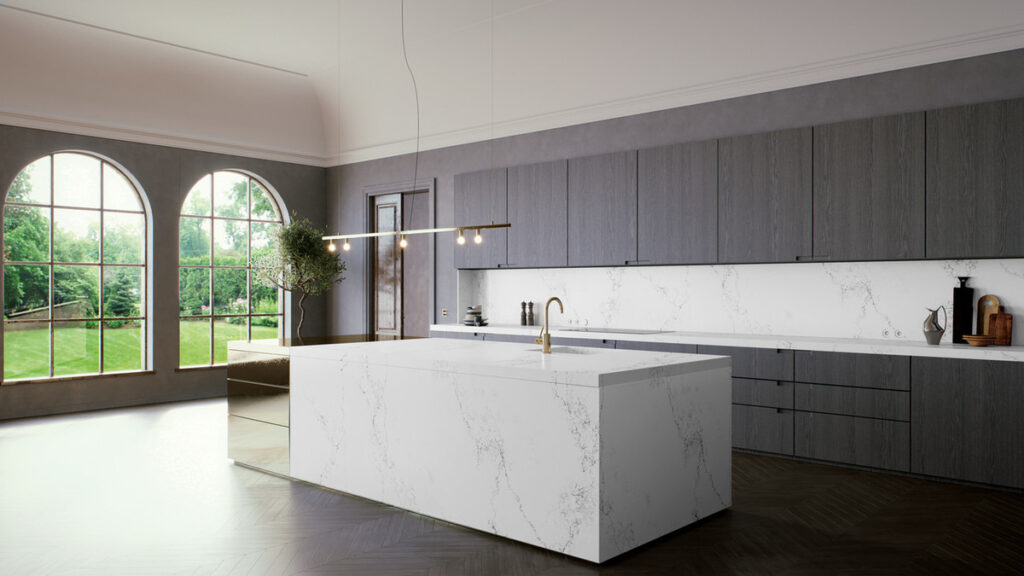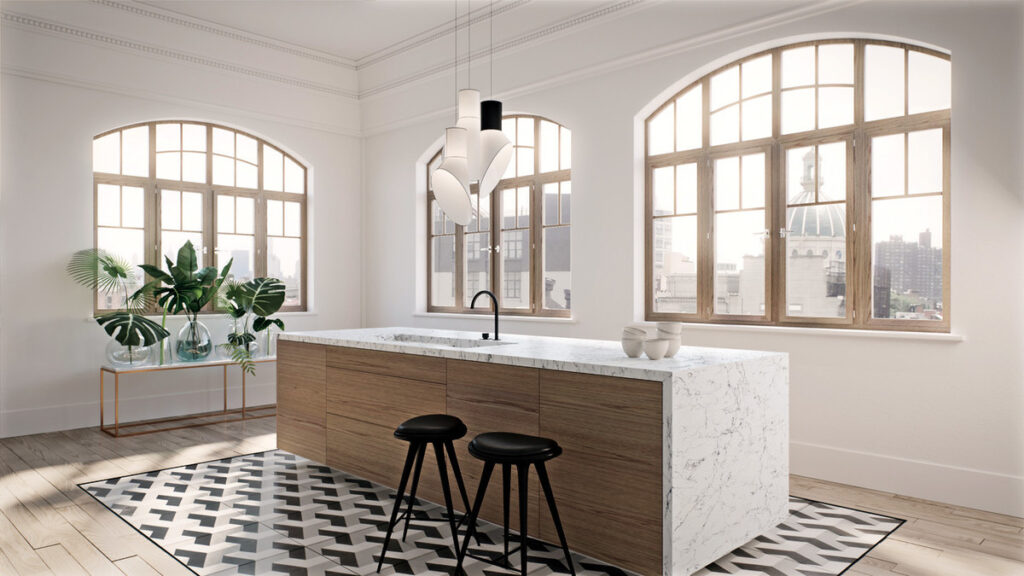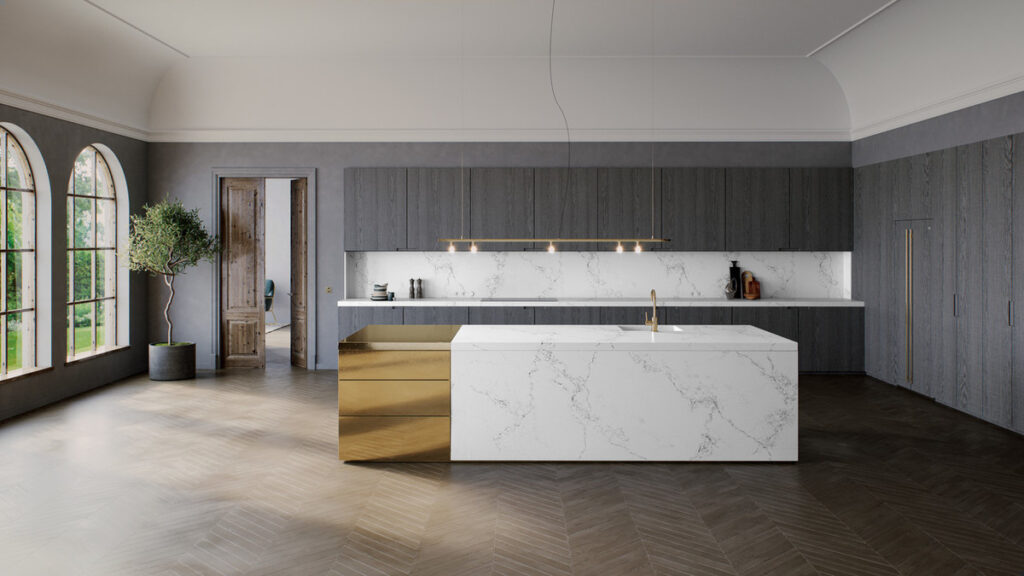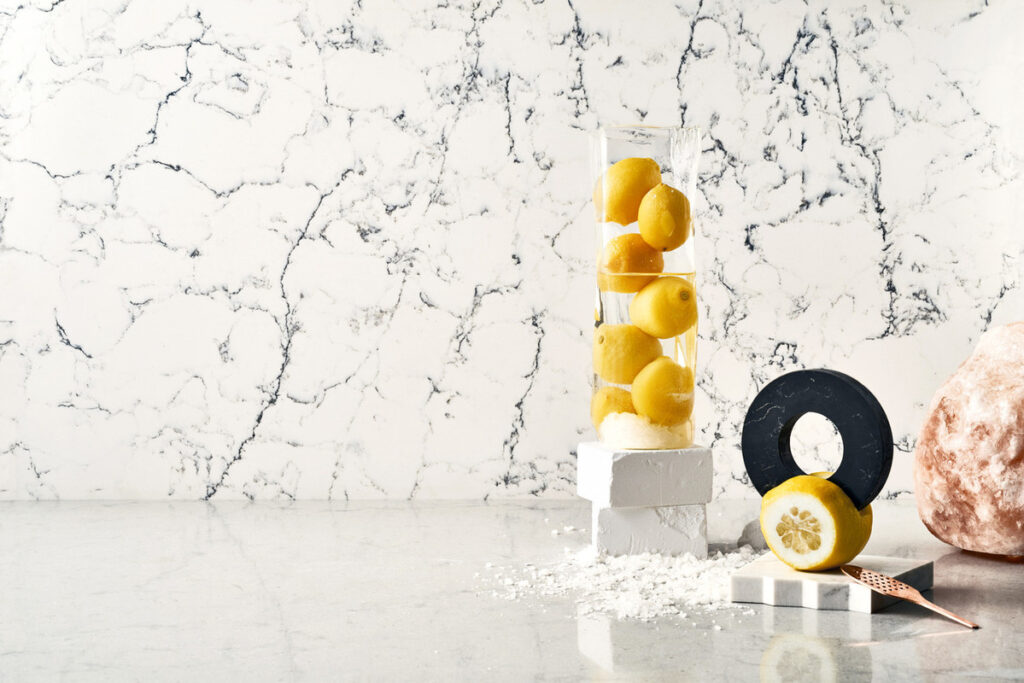7 Things You Need to Know About Epoxy Countertops
5 min read
When you are remodelling your kitchen, you may consider the various options for countertop materials, from granite, quartz, quartzite and even marble. One you might not immediately think of is an epoxy countertop. Pouring a coating over your existing countertop to cover burn marks and stains can provide you with a cost-effective and long-lasting countertop. However, you need to understand epoxy in detail before rushing to make a purchase.

What is Epoxy?
Epoxy is a polymer that has unique resistance and mechanical properties. It is made by mixing a hardener and resin, a process that cures the mixture, forming a strong bond. The term epoxy is used in reference to any basic component in epoxy resins. Epoxies have a variety of uses especially due to their adhesive applications. They are the strongest adhesives available and have even found use in the aerospace and automotive industries. Epoxy coatings provide a protective and tough coating, ideal for different home applications such as revitalizing your kitchen countertops and even floors.

Before you go ahead and order your epoxy resin, here are 7 facts that you must know.
What does this mean? This means that you cannot enter a store and buy an epoxy countertop. We are used to purchasing other types of countertops made with materials such as quartz, quartzite or even marble. For an epoxy countertop, you can apply epoxy over your laminate, metal, concrete, formica, ceramic or wood countertop materials. With higher quality materials like marble or granite, you likely won’t want to cover those with something like epoxy.
To make epoxy countertops, create a mixture of resin and the hardener. While both are sold in liquid form, they become solid once they are mixed. To get the right consistency, ensure you only mix the required proportions. Once you install the epoxy on your countertops, you should get a glossy, crystal-clear or textured finish depending on the epoxy you opt to work with. It is important to add a shiny protective layer on your epoxy countertop after the application.

The epoxy application gives no second chances. This is because the resin dries immediately after application. If you are unsure of the application process, it is best to get help from a professional. However, you also have the freedom to play around with epoxy and produce an interesting aesthetic. But remember, you get no second chances with the epoxy application.
You cannot mix the resin and hardener and wait to do the application the following day. The mixture will dry fast. Ensure you have everything ready for the application before mixing the two components.
If you do not like a messy application process, consider getting a professional to handle the application or better yet, consider other countertop materials such as quartz. An incorrect epoxy application can result in air bubbles and a lumpy surface.
With most epoxies being self-levelling, you must place a cloth under your countertop. Plastic sheeting is ideal to catch epoxy drips and save you from time spent removing the epoxy from your floor.

Epoxies release volatile organic compounds (VOCs) into the air and must be used in a well-ventilated room. Failure to do so can present significant health hazards. Even after the application process is complete, you want to ensure that the space is not in use for up to a week to allow the VOCs to evaporate. To avoid these health hazards, consider getting a quartz countertop. It is safe and does not release VOCs after installation.
The epoxy countertop application process is not so seamless and may require more time than other countertop installations. Epoxy application is also labour intensive since you must prep the surface before application.
You need to ensure that the countertop surface is spotless. Any dirt, spots or food particles will prevent an even epoxy countertop. To avoid air bubbles and defects, the curing time can take up to 24 hours.
There are no two epoxy products that are created the same. Inferior epoxy products may be less heat resistant or more brittle. If the epoxy is runny, the quality may not be great and could result in a thinner countertop layer that will not hold up sufficiently. Some epoxies can also be brittle after curing, increasing the risk of damage.
Epoxy countertops stain easily compared to other countertops such as quartz. As such, spills should be cleaned immediately to reduce the chances of permanent stains.
Now that we have looked at some traits of epoxy countertops, here’s why you should choose quartz countertops.
Low maintenance– Quartz is a low maintenance countertop that looks great for many years. Provided you clean spills as soon as they occur, avoid placing hot objects on the countertop and use mild soap and water to clean, you will never have to worry about extra maintenance costs.
Minimal imperfections– This is a plus for perfectionists. Countertop materials such as marble and granite may have significant imperfections such as cracks, pits and colour streaks. With epoxy countertops, the imperfections can be many depending on the quality of epoxy used as well as the installation process. With the precision under which quartz countertops are made, the occurrence of fissures, pits and other imperfections is minimized.
Uniformity– Quartz has a uniform appearance. The consistency of a quartz countertop cannot be achieved with the use of epoxy.
Aesthetics appeal– Everyone wants a countertop that blends with the aesthetic of their space. While epoxy provides a glossy, shiny and unique surface, quartz provides a much better visual appeal and an easier installation. With quartz, you won’t need to worry about re-applications, making it a superior countertop material than epoxy.
{{ subtitle }}
{{ i.desc }}
{{ subtitle }}
{{ subtitle }}